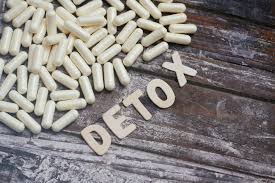Before a person can move forward on their road to recovery from drug addiction, they must first cleanse their body of all addictive substances that are left in the wake of prolonged drug abuse. Drug detox is the first and one of the most important steps in the recovery process. It is also a vulnerable period for anyone trying to recover from drug addiction.
What is Drug Detox?
Drug detox is the process the body undergoes in order to rid itself of drugs and addictive substances. It is a crucial step towards recovery, since physical and mental wellness cannot begin until the last traces of the offending drugs are gone. The detox process generally comes with uncomfortable psychological and physical withdrawal symptoms. Because of this, individuals with drug addictions should seek out specialized facilities that exist to help patients detox comfortably and safely.
Drugs That Cause Withdrawal
There are a number of different substances that can become addictive and cause withdrawal symptoms when their use is suddenly stopped. Benzodiazepines and alcohol are the most common substances. Apart from these, sleeping medications, opioids, cocaine, and even marijuana can trigger drug withdrawal symptoms.
Types of Drug Detox
Professional drug detox takes place in two primary settings: inpatient and outpatient. Following are its main types:
-
- Outpatient: This type of drug detox care generally occurs in a freestanding medical center or a physician’s office. Patients arrive for a scheduled appointment every day and return home after receiving the treatment.
- Intensive Outpatient: It is similar to traditional outpatient detox and occurs in a hospital setting or physician’s office. Licensed nurses monitor patients to ensure there are no side effects that require further medical care.
- Residential Inpatient: This type of drug detox occurs in a social, non-medical detoxification setting, e.g. a rehab center. Patients live at the rehab center through the entire detoxification period.
- Medically-Monitored Inpatient: This occurs in freestanding detox centers. It places a higher focus on medical treatments.
- Hospital Inpatient: This type of detoxification occurs in psychiatric or general hospitals. It provides medically-managed, intensive detox with 24-hour supervision.
What Do Drug Detox Programs Look Like?
People entering a drug detox program can expect to take medications to ease the withdrawal symptoms while the body rids itself of addictive drugs. Apart from these, drug detox programs may provide medications specific to the substance of abuse. Furthermore, residential or inpatient drug detox programs offer medical monitoring. Staff also provides supportive care, such as listening to and reassuring patients, protecting them from harming themselves, and explaining what is happening to them. Activities are generally minimal in detox programs. Medical staff provides care in quiet, calm settings, and patients are allowed to sleep and rest as desired.
The Dangers of Improper Detox
As mentioned before, a person with drug addiction can have serious withdrawal effects when they stop using the addictive drugs all of a sudden. Without detoxing properly, you run the risk of severe mental health strain, hallucinations, cardiovascular problems, seizures, and even death. That’s why it is highly recommended that you seek professional medical assistance. You don’t have to go through this alone.
How Long Does Detox Last?
The length of the drug detox process varies from one person to another. It depends on many factors, such as substance used, the amount of the drug used, the amount of time the drug has been used by the individual, their mental and physical state when they start a detox, and more.
Life After Detox
As mentioned in the beginning, drug detox is only the first step in recovering from an addiction. Afterward, it is highly recommended that you attend addiction treatment and therapy. While you may feel better physically after detox, the underlying conditions and causes of your addiction have yet to be treated. After all, recovery doesn’t end with drug detox – it simply begins.

